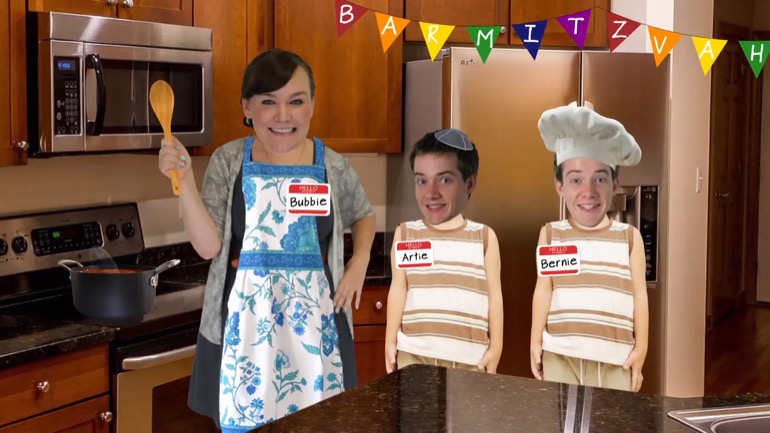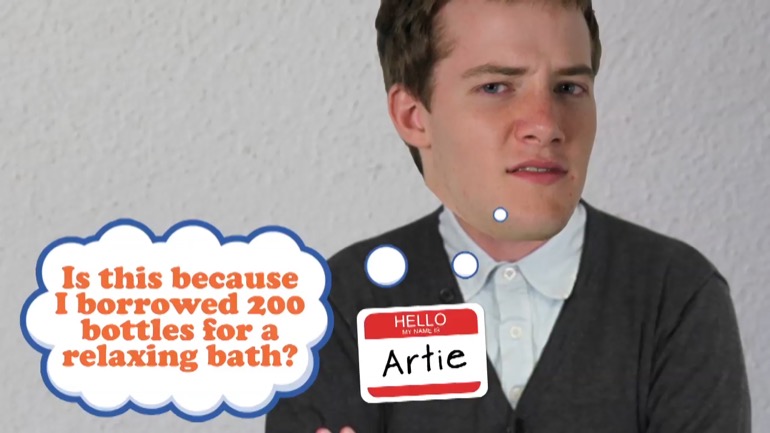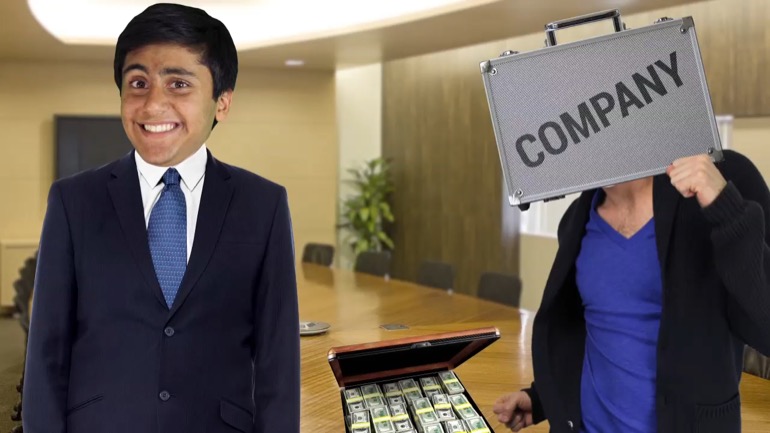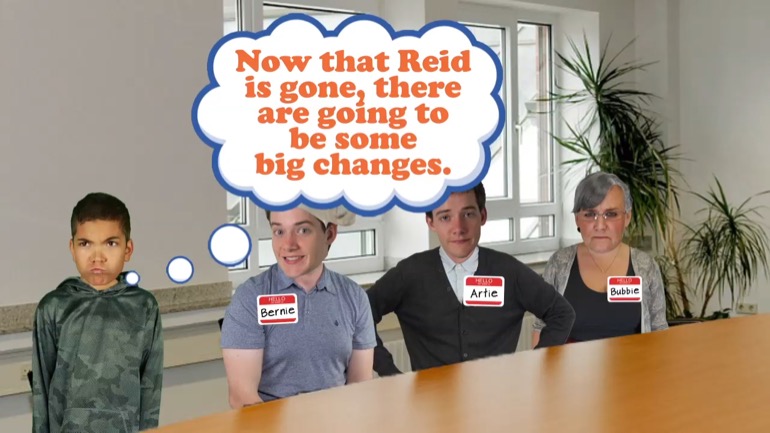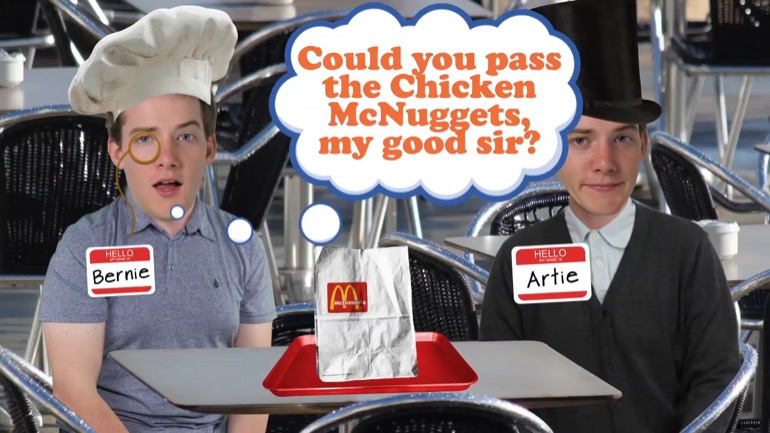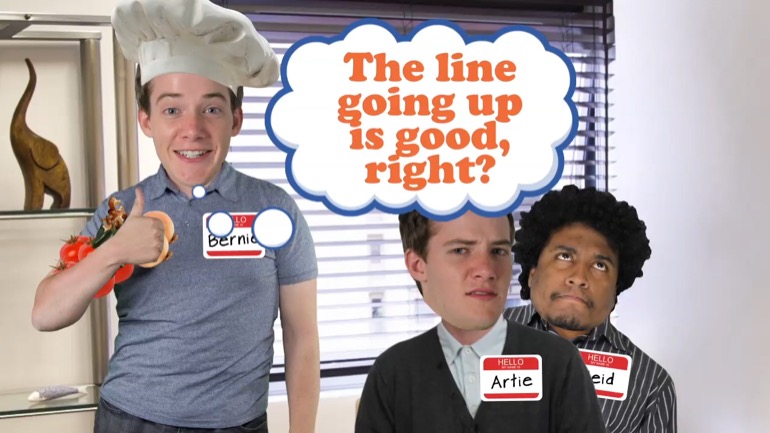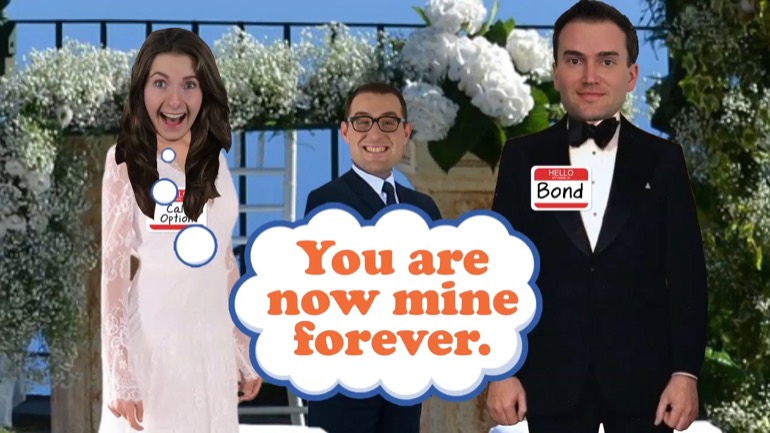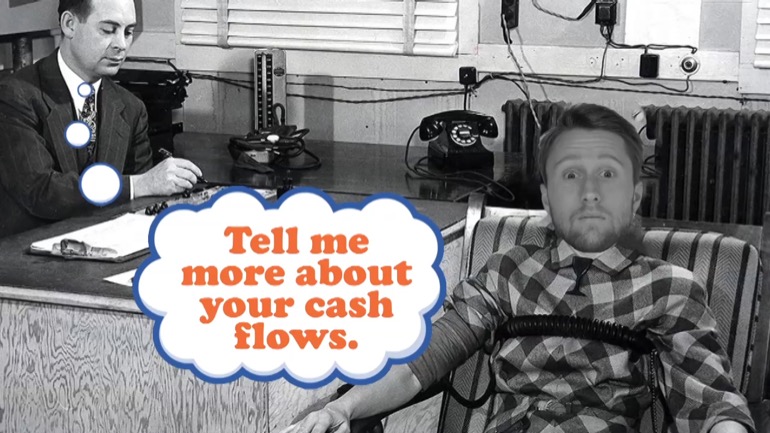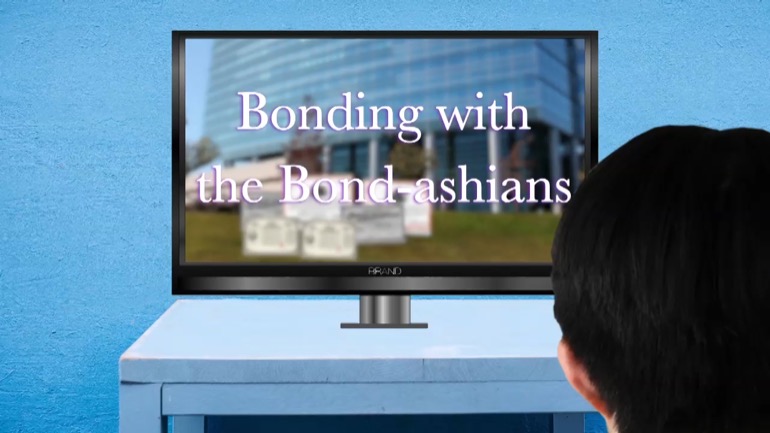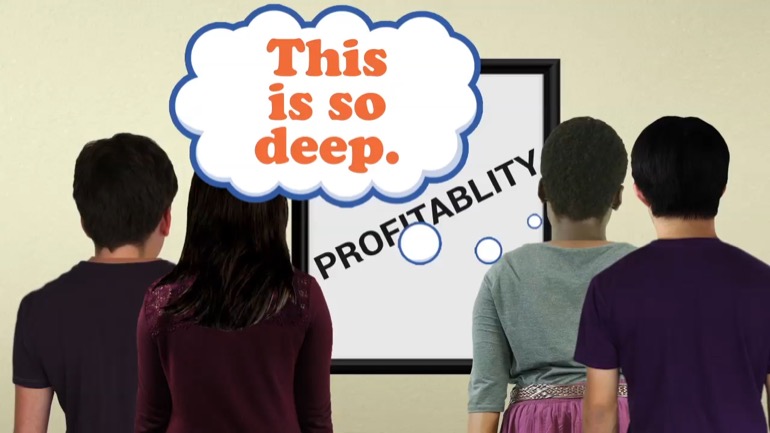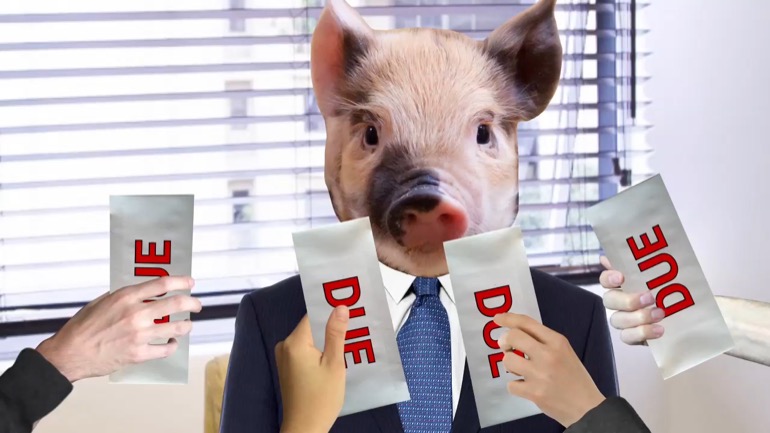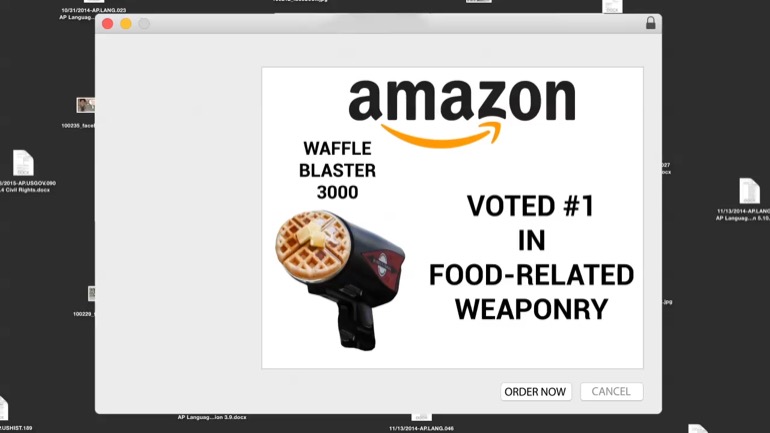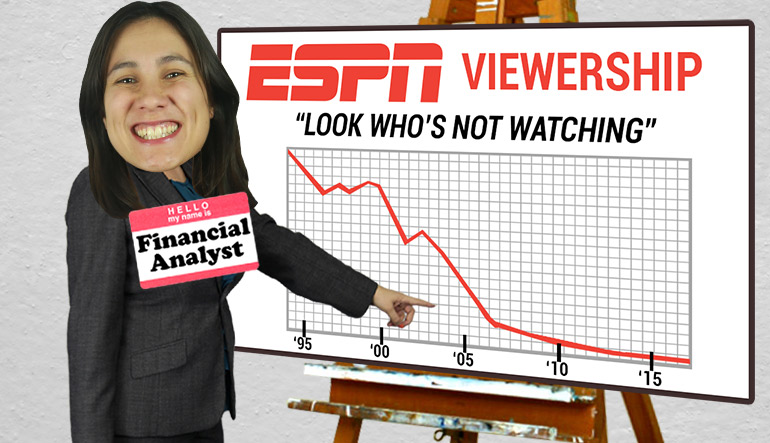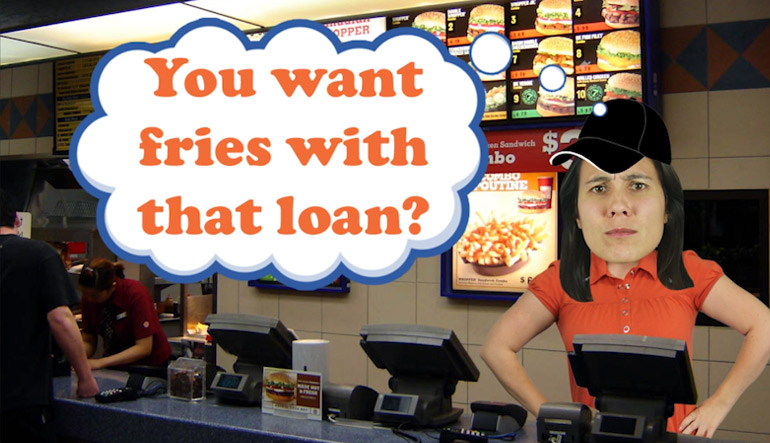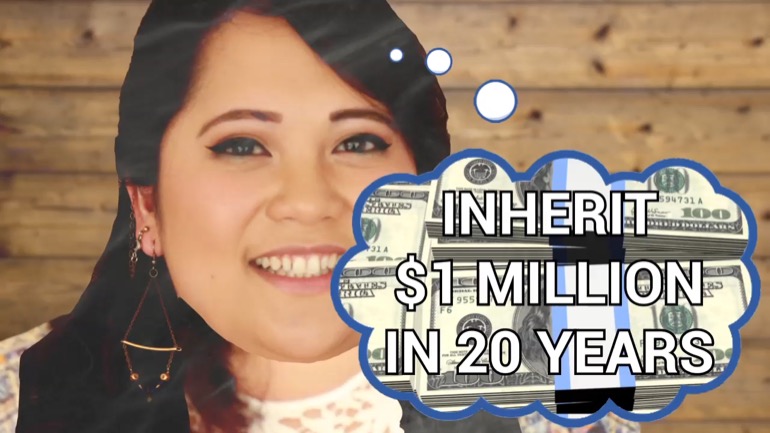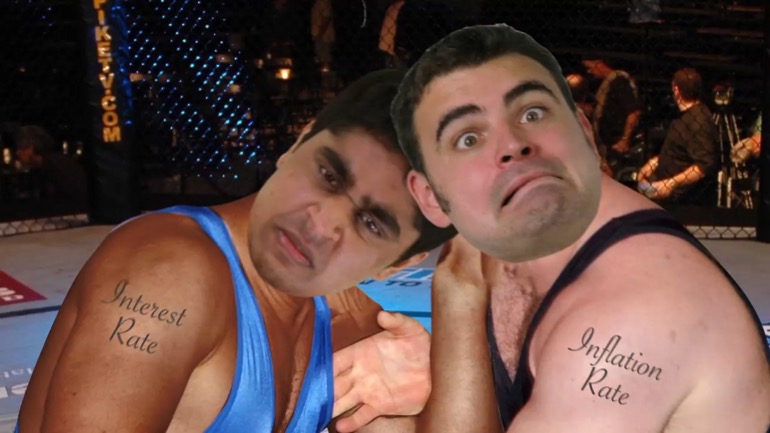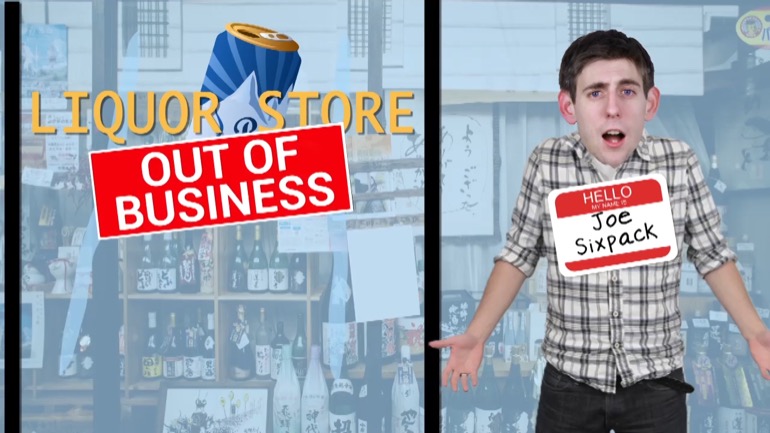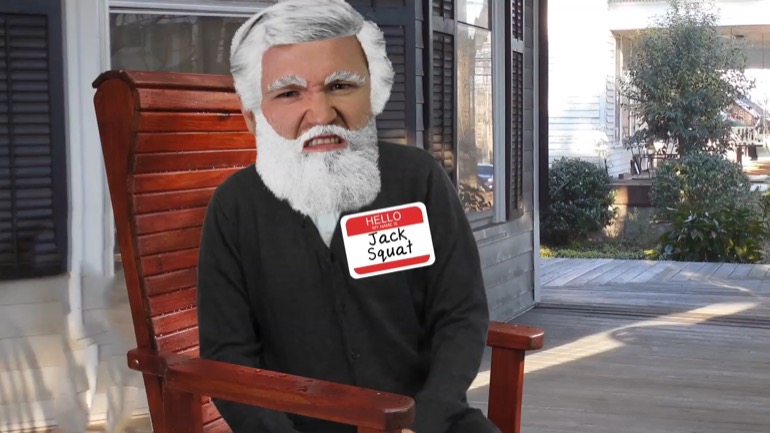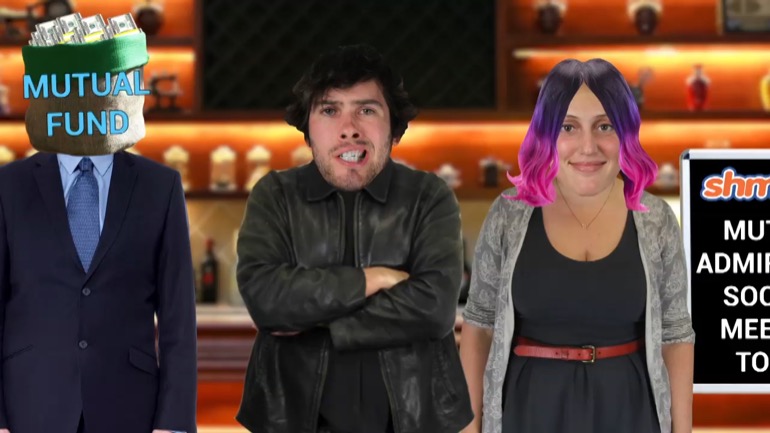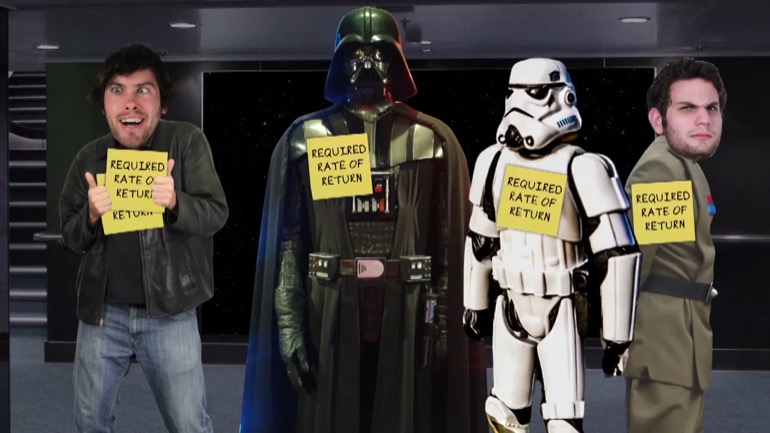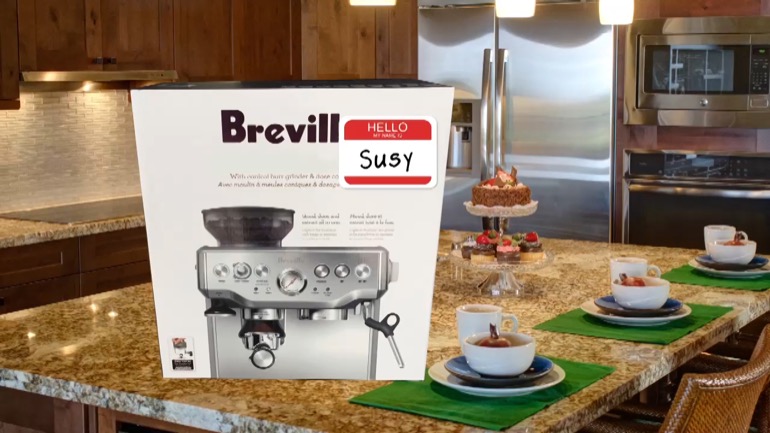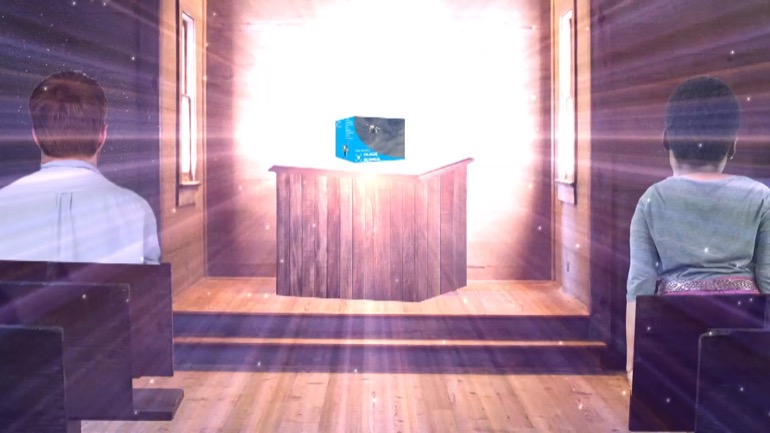ShmoopTube
Where Monty Python meets your 10th grade teacher.
Search Thousands of Shmoop Videos
Principles of Finance Videos 156 videos
Okay, so you want to be a company financial manager. It's basically up to you to make money for the shareholders. It would also be swell if you mad...
How is a company... born? Can it be performed via C-section? Is there a midwife present? Do its parents get in a fight over what to name it? In thi...
What is an income statement, and why do we need it in our lives? Well, let's take a look at an income statement for Year 1 of the Sauce Company, an...
Principles of Finance: Unit 1, The Sauce Kings 11 Views
Share It!
Description:
Why do Artie and Bernie get common stock, but Reid gets preferred stock? What's the difference, and how will this affect their friendship?
Transcript
- 00:00
principles of finance. a la shmoop. the sauce Kings. common versus preferred
- 00:06
stock. and a few other flavors of shares thrown in for rest spice. yep we're back
- 00:12
to the sauce Kings. let's see how things are looking for them Artie and Bernie [Artie and Bernie in the kitchen]
- 00:16
shake hands with Reed but then notice something odd in the contract. reads
- 00:21
$500,000 buys a different class of stock than the stock that Artie and Bernie own.
Full Transcript
- 00:27
hmm well Reed stock is preferred and while theirs is just common. feeling
- 00:33
gently insulted they ask Reid about this and he explains that this flavor of
- 00:38
preferred stock doesn't pay a dividend and has no fancy terms really. in many
- 00:43
venture deals preferred stock at this stage will carry other terms usually
- 00:47
favorable to the investor. the most common of which is liquidity preference
- 00:52
multiples. for example for a 2x lick prep the investor gets double his money back
- 00:57
before the common shareholders get a dime. in this story Reid owns convertible
- 01:02
preferred stock and the founders own common stock. so that means when he wants
- 01:07
to Reed can convert his preferred into common. also in most cases and especially
- 01:12
in public firms preferred shares don't vote or have any pre-emptive rights like
- 01:18
anti-dilution provisions, and like us for food stocks don't mature. they just sit
- 01:23
there paying out dividends twice a year until they're called ie bought back by
- 01:27
the company or disposed of another way right?
- 01:29
so as Reid points out since he's risking his own cash and has little control over [amazon tries to eat the sauce kings]
- 01:33
the day-to-day operations of the business he deserves to get his cash out
- 01:38
preferentially before they do. it's the only protection he has though you know
- 01:43
that's it if things go great well then who's prefers convertible into common,
- 01:46
like at an IPO, or if they sell the company to Google, and then everything is
- 01:51
all the same common flavor of stock but if things go awry and Reid must step in
- 01:57
and liquidate the company, because Artie and Bernie missed their profitability target
- 02:02
numbers and have to raise more money diluting themselves and diluting Reid
- 02:06
well then Reid should have a preference over that right? if bad things happen in
- 02:11
Reid can sell the company for only 3 hundred a grand well then Reid keeps all that [pie chart]
- 02:15
300 grand. he still lost money. by the way Artie and Bernie well they get nothing.
- 02:19
if Reid can sell the company for only 600 grand and some eBay style auction
- 02:24
well then Reed gets back his full 500 grand first, then of the remaining
- 02:28
hundred grand while the guy, split the proceeds a third third third.
- 02:32
alright well Reid wrote a sharp term sheet he's done this before. the claim
- 02:36
that the common stockholders would have against this kind of liquidation is
- 02:40
called a residual claim to assets. its last thing the breadline soup kitchen
- 02:45
should things go awry that's common stock. well Artie and Burnie consider
- 02:49
the various options and recognize that Reid is one smart cookie. the first thing
- 02:53
he points out is how poorly the portable barbecue business scales. it requires
- 02:59
huge amount of labor, it can't operate on rainy days, it carries all kinds of risk
- 03:03
of an explosion or a customer burning himself on the grill and other possible
- 03:08
disasters. right? Reid suggests they put a barbecue set up in the top thousand [flaming BBQ]
- 03:13
malls in the country just so that the smoky smell of their awesome sauce acts
- 03:19
as a marketing agent. the way mrs. Fields Cookies did in the 80s the baking
- 03:23
chocolate smell in those days filled the air ducts and the halls of malls and
- 03:27
lured people to the kiosks like mosquitos to that little buzzing purple
- 03:31
light thingy. well the guys thought wow what a great idea.
- 03:34
and they agreed to just bottle the sauce and sell it as their only product the
- 03:39
same way wd-40 and well really Google is a one product company. Artie and Burney
- 03:43
dream a bit and realized that as young 21 year olds well they have more greed
- 03:48
than fear about this opportunity. they think that there is a company worth
- 03:52
millions in here somewhere and they want to ferret it out. well at this juncture
- 03:56
the guys shake hands and assess their situation. consigliere hy does the legal
- 04:01
work to create the sauce company corporation out of thin air by filling
- 04:06
out a few forms with government and registering the company in Delaware.
- 04:09
forming the sauce company into a corporation is a really good idea
- 04:12
because it protects Artie burney and bubby and likely anyone else remotely attached
- 04:18
to the company from liabilities arising from say a bankruptcy. if company went
- 04:23
bust only its assets would be lost the assets [bankruptcy defined]
- 04:26
from a A and B's bar mitzva savings would be left intact. like lawyers couldn't
- 04:30
touch it. this is called limited liability and it's good if you're a
- 04:35
founder owner and it exists to protect founder owners from you know getting
- 04:40
sued into it living in a station wagon or something. there's a fair amount of
- 04:43
record-keeping that must be done here how many tons of onions will be bought
- 04:47
how much will they will cost how much will be collected from the sale of sauce
- 04:51
bottles to Safeway etc. well a and B know that if they produce great results in
- 04:55
some day go public ,well they'll live under the scrutiny of public investment
- 04:59
regulators way stricter than private ones and we'll have to annually produce
- 05:04
conforming financial statements give lists of stockholders and so on, as a
- 05:08
private company it'll have these obligations but in
- 05:10
order to go public in the future well they'll need to have an auditable trail
- 05:14
of years of Records. so Reid's advice is heard they start the record-keeping now
- 05:18
the company high creates has a million shares outstanding at first which he
- 05:23
normally sets as being worth one penny each . Artie and Bernie by five hundred
- 05:27
thousand shares each for five grand they made this much just from their one
- 05:31
barbeque stand. in the three months during which it operated. they are the
- 05:35
founders right ?that penny a share is the initial par value of the stock. it really
- 05:41
doesn't mean anything for future investors but there needs to be some [man in checkered suit]
- 05:44
value assigned to that stock when a company is formed. that term by the way
- 05:48
also has nothing to do with golf. for par value stock you get a pretty piece of
- 05:52
paper that's supposed to feel like it was printed on the McCobb dead skin of a
- 05:57
sheep .it's called the stock certificate. but the company sold read convertible
- 06:01
preferred stock for a buck a share. well the preferred is worth way more
- 06:05
than the common at this point but the common is clearly worth more than a
- 06:09
penny. so what's it worth? a nickel a dime? well the company will have to place a
- 06:13
value on that comment at some point with the help of the bank's lawyers. to 409a
- 06:18
evaluation that's what it's called 409 a/ if it's a nickel well then the four cent [409a valuation defined]
- 06:23
theoretical gain is now a balance sheet asset yay for them they have assets/ and
- 06:28
it's called paid in capital or capital surplus/ yep something like that /all
- 06:33
right well then a and B turn around and sell the preferred stock to read at a
- 06:37
hundred times the price next week/ how can this be
- 06:40
you may reasonably ask? well the odds of the sauce company going bankrupt at this
- 06:45
point are extremely high. if it does there really no assets to sell. so it is
- 06:50
in fact reasonable that the common stock is worth a small fraction of what the
- 06:55
preferred stock is worth. at this point anyway the dream of Dreams in times gone
- 06:59
by is that while someday the two classes of stock convert into that one class and
- 07:04
that common truly does become worth about to share. the company realizes that [common and preferred stock pictured]
- 07:08
it will need to raise more capital over time and that many more shares will have
- 07:12
to be printed over time for other investors.
- 07:14
so it has authorized another 10 million shares to be printed in the future.
- 07:19
they're just authorized or like provisionally optionally okey dokey that
- 07:24
is if company needs to bring them out of the back vault of buddy's garage it can.
- 07:29
but while they sit there they mean almost nothing as far as valuation or
- 07:33
ownership of the company goes. they're that nerdy guy who watches Star Trek on
- 07:37
DVD Saturday nights if ever needed he's a phone call away from being a drinking
- 07:42
buddy or a date you know depending on your persuasion. [man answers phone]
Related Videos
GED Social Studies 1.1 Civics and Government
What is bankruptcy? Deadbeats who can't pay their bills declare bankruptcy. Either they borrowed too much money, or the business fell apart. They t...
What's a dividend? At will, the board of directors can pay a dividend on common stock. Usually, that payout is some percentage less than 100 of ear...
How are risk and reward related? Take more risk, expect more reward. A lottery ticket might be worth a billion dollars, but if the odds are one in...


